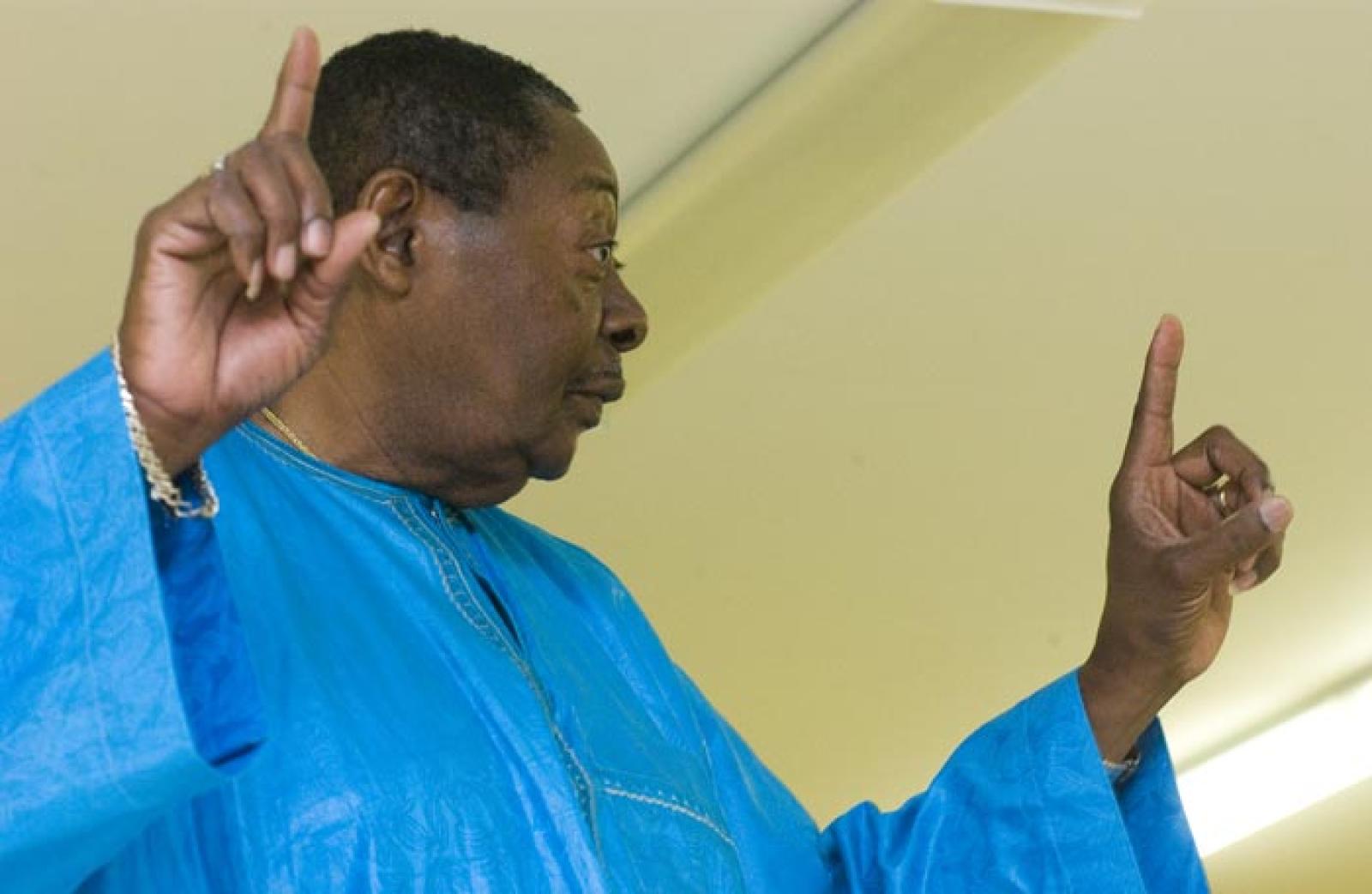For the Jim Thomas Spirituals Choir, the history is as much a part of the experience as the music. Tracing the evolution of American music through the Underground Railroad and the Middle Passage, Jim Thomas and his chorus sing a story of our cultural past.
This year marks the 150th anniversary start of the Civil War, bringing the history of that period, and all it contains, to the forefront of American historical consciousness. So with Saturday’s performance at Union Chapel, this teaching choir will decode the era’s musical influence as well as the historical significance of so many songs that are embedded in the American psyche.
Slave spirituals have spread across our musical history, leaving a mark on almost every genre of American music.
“These songs contain the first blue note, from the African scale, which first appeared in spirituals, later in blues and then in jazz, which are all considered true to American musical history,” said Mr. Thomas. “It’s extremely important to this area of our culture.”
This ubiquity also helps audiences connect to the music they hear from this choir.
As for the remembrance of the Civil War, however, Mr. Thomas hopes that people will remember the centrality of slavery, and the importance of its presence in American cultural identity.
“The group that should celebrate is the group that was set free,” Mr. Thomas said. “People sometimes say that the war was not fought to free the slaves. Regardless of how you put the facts on the table, you always get back to slavery, and that’s the heart of it.”
He noted with chagrin that often this is not the history we are taught; instead the storyline shifts to favor the triumphant militarism of the Civil War, or the fight to save the Union. While this is an important part of the history of that period, it is only one aspect, insists Mr. Thomas: “This is the only country in the world that celebrates a civil war, because civil wars separate families and cultures. But we celebrate ours.”
The choir performs the songs that slaves sang to each other, communicating signals of a way to freedom.
Some of the spirituals with which we are most familiar began as codes on the Underground Railroad. “When the Underground Railroad began, they used a number of code songs to tell people where to go. Harriet Tubman had two songs that introduced her, and when people started singing those songs, everyone knew she was nearby. Her songs were Go Down Moses, until it was detected, and then she changed her code song to [Swing Low] Sweet Chariot,” Mr. Thomas explained.
“We want to get across what it was like for slaves, that they had to communicate to survive,” Mr. Thomas said. “The median age for slaves was 17.4 years — they were just teenagers, and they needed to communicate.”
Mr. Thomas spoke of his attempt to reverse the dehumanization of slaves that has occurred throughout American history. His does this by exposing the history that often goes unwritten. Patterns of cultural ignorance can be brought to light through song, he said.
He maintains that the history of the Civil War, and all that it means, is not exclusive to its veterans or to the slaves on whose behalf it was fought; rather, it is shared. And the songs of the era are not exclusive either.
The majority of the choir is not African American, which is often surprising to the audiences for whom they perform.
Laurel Redington, a member of the choir for the past five years and a deejay and producer for MVY Radio, said this can work in favor of the choir’s desire to spread understanding.
“That the majority of the choir is white brings more people into what we do,” she said. “The choir isn’t composed in the way you’d think it would be, so it makes you realize that this is everyone’s history.”
As a part of every American’s cultural genome, these songs and the messages they deliver become all the more resonant in the spirituals choir’s performance. “People’s response is always one of profound appreciation, and it’s very enlightening,” said Ms. Redington, adding:
“In all of my experiences, I’ve always been very moved, and it’s a very visceral emotional experience.”
The inescapable presence of the music of the slaves in our cultural present brings home the memory of the past. And on this anniversary, the 150th of the war that threatened to tear the Union apart, Mr. Thomas said, it is important to remember both the progress we have made in creating a complete portrait of history, and all that remains to be done.
The Jim Thomas Spirituals Choir performs with special guest Lavert Stuart on Saturday, July 16, at 7 p.m. at the Union Chapel. Tickets are $15, available at the door.







Comments
Comment policy »